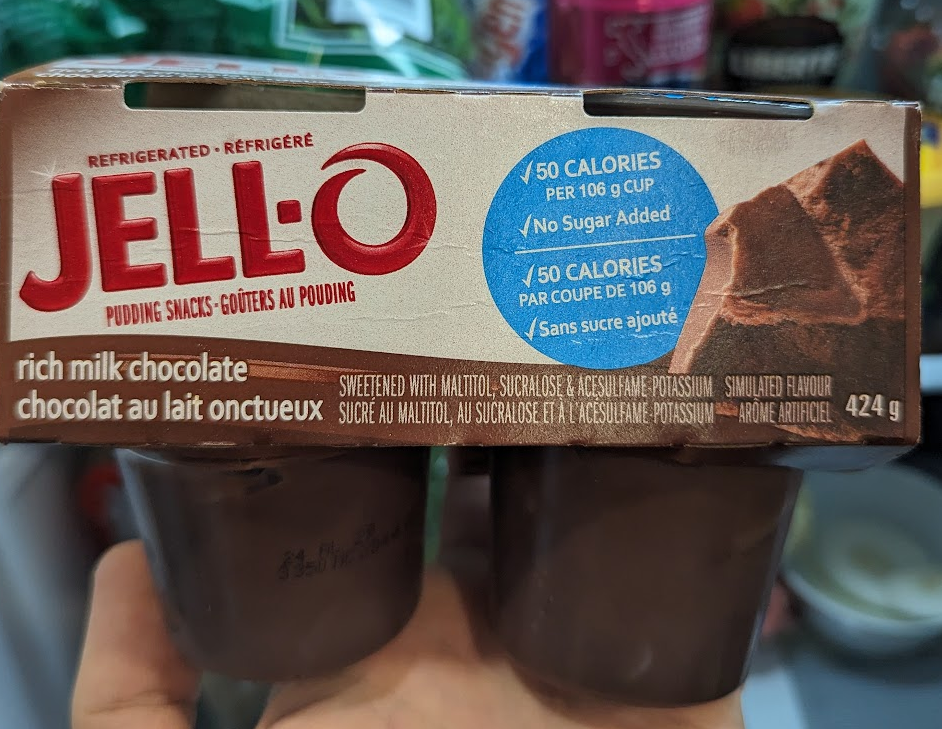My husband finds artificial sweeteners bitter as well, including stevia. I don't. I wouldn't doubt if there's something genetic at play.
Even artificially sweetened products tend to be sickly sweet to me though. I'd love a version with less sweetener, period.
Edit: Holy misfiring autocorrect Batman
My husband finds artificial sweeteners bitter as well, including stevia. I don’t. I wouldn’t doubt if there’s something genetic at play.
I was just speculating about this in another comment. I've got one of those "bitter super-taster" genes and I definitely have the same hunch
I can't stand fake sugar, and it never is not noticeable. But I often find I'm alone in that. We will get popsicles or some new fangled soda, and I'll immediately taste the bitter alcohol flavor and it ruins the food. My kids and my wife don't mind, and I haven't met others who notice. I would rather have something unsweetened than have it taste like stevia or monk fruit or aspartame or sucralose. It all tastes bad.
I’ll immediately taste the bitter alcohol flavor
I think this might be genetic.
I have one of those "bitter super-taster" genes which means that I taste bitterness in things ~80% of people don't, and things that people do generally think of as bitter might be overwhelmingly so for me, and for me some artificial sweeteners definitely do taste bitter. Not all of them though, so eg. stevia is fine. There's probably a ton of different mutations that can cause you to taste things differently
Coca-Cola does this same thing for years with some sort of Fanta and Sprite. It's general now. They want you to eat and drink chemicals instead of bad food.
That's why I only eat food that's not made out of chemicals. Conceptual food that is. I just ate the idea of a hamburger
Shrinkflation
A community about companies who sneakily adjust their product instead of the price in the hopes that consumers won't notice.
We notice. We feel ripped off. Let's call out those products so we can shop better.
What is Shrinkflation?
Shrinkflation is a term often coined to refer to a product reducing in size or quality while the price remains the same or increases.
Companies will often claim that this is necessary due to inflation, although this is rarely the case. Over the course of the pandemic, they have learned that they can mark up inelastic goods, which are goods with an intangible demand, such as food, as much as they want, and consumers will have no choice but to purchase it anyway because they are necessities.
From Wikipedia:
In economics, shrinkflation, also known as the grocery shrink ray, deflation, or package downsizing, is the process of items shrinking in size or quantity, or even sometimes reformulating or reducing quality, while their prices remain the same or increase. The word is a portmanteau of the words shrink and inflation.
[...]
Consumer advocates are critical of shrinkflation because it has the effect of reducing product value by "stealth". The reduction in pack size is sufficiently small as not to be immediately obvious to regular consumers. An unchanged price means that consumers are not alerted to the higher unit price. The practice adversely affects consumers' ability to make informed buying choices. Consumers have been found to be deterred more by rises in prices than by reductions in pack sizes. Suppliers and retailers have been called upon to be upfront with customers.
https://en.wikipedia.org/wiki/Shrinkflation
Community Rules
- Posts must be about shrinkflation, skimpflation or another related topic where a company has reduced their offering without reducing the price.
- The product must be a household item. No cars, industrial equipment, etc.
- You must provide a comparison between the old and new products, what changed and evidence of that change. If possible, also provide the prices and their currency, as well as purchase dates.
- Meta posts are allowed, but must be tagged using the [META] prefix
n.b.: for moderation purposes, only posts in English or in French are accepted.##

